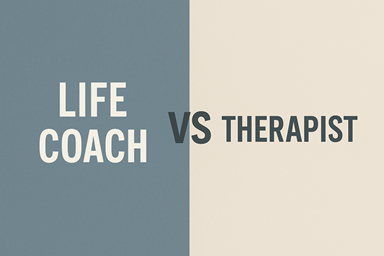Becoming a life coach is an exciting and fulfilling career path that allows you to help people achieve their personal and professional goals. Whether you’re passionate about personal development, mental health, or helping others overcome obstacles, life coaching can be a rewarding field. However, before you can start guiding others, it’s essential to understand the process involved in becoming a certified life coach.
In this article, we will take you through the key steps of how to become a life coach, the requirements, and the different options available for life coach training and certification programs. By the end, you’ll have a clear understanding of what it takes to begin your career as a certified life coach.
What Does a Life Coach Do?
Before diving into the specifics of how to become a life coach, it’s important to understand the role of a life coach. A life coach helps individuals achieve their personal or professional goals by providing guidance, motivation, and accountability. Life coaches work in various areas, including career development, personal relationships, health, wellness, and self-improvement.
Unlike therapists, life coaches focus on goal-setting and action plans to help their clients move forward. While therapy deals with mental health issues, life coaching is more about personal growth and achievement. Life coaches act as guides and mentors, helping clients identify their obstacles, develop strategies, and take actionable steps toward success.
How to Become A Life Coach?
Now, let’s talk about how you can become a life coach.
Step 1: Understand the Role of a Life Coach
Becoming a life coach requires a deep understanding of the role you will be taking on. Life coaches must possess a variety of soft skills, including active listening, empathy, communication, and problem-solving. They should also be able to motivate and inspire clients, helping them take action and move beyond their limitations.
If you’re wondering whether you have what it takes, ask yourself the following questions:
- Do I enjoy helping others reach their full potential?
- Do I have strong communication and listening skills?
- Am I patient and understanding with people?
- Am I passionate about personal development and growth?
If you answered yes to these questions, becoming a life coach could be a perfect fit for you.
Step 2: Get Proper Life Coach Training
Life coach training is an essential part of the journey to becoming a professional. Although life coaching doesn’t require a specific degree, formal training equips you with the knowledge, tools, and techniques needed to effectively guide clients. In life coach training, you’ll learn coaching methodologies, how to set goals, communication strategies, and ethical guidelines.
Life coach training typically covers the following topics:
- Understanding coaching principles
- Developing a coaching style
- Setting achievable goals for clients
- Communication techniques for listening and feedback
- Ethics and professionalism in coaching
By completing life coach classes or programs, you will be prepared to handle various coaching situations with confidence and professionalism.
Step 3: Explore Life Coach Certification Programs
After undergoing life coach training, many aspiring coaches choose to pursue life coach certification to enhance their credentials. Certification programs, such as those accredited by the International Coach Federation (ICF), are designed to meet international standards for life coaching. A certified life coach is someone who has completed an accredited training program and passed a certification exam.
The benefits of certification include:
- Establishing your credibility as a life coach
- Gaining access to coaching tools and resources
- Building trust with clients
- Becoming part of a professional coaching community
While certification is not required by law, it’s highly recommended as it demonstrates your commitment to the profession and assures potential clients of your skills and knowledge.
“The best way to predict the future is to create it.” – Abraham Lincoln
This quote reflects the essence of life coaching. As a coach, your role is to empower clients to create the future they want, setting actionable goals and helping them overcome challenges along the way. Life coach training and certification will equip you with the tools to inspire this transformation in others.
Step 4: Decide on Your Coaching Niche
It always works if you specialize in a specific area, such as career coaching, relationship coaching, health and wellness coaching, or business coaching. Specializing allows you to focus on a particular type of client and develop expertise in that area. As a life coach, your niche will help you attract the right clients who need your particular skills and knowledge.
Here are a few popular life coach niches:
- Career Coaching: Helping clients navigate their professional life, find their purpose, or transition between careers.
- Health and Wellness Coaching: Focused on improving clients’ physical, emotional, and mental health.
- Relationship Coaching: Assisting individuals or couples in building better relationships, improving communication, or resolving conflicts.
- Business Coaching: Helping entrepreneurs and professionals reach their business goals and improve performance.
Finding your niche is a personal decision based on your interests and the type of coaching you feel most passionate about.
Step 5: How to Get Certified as a Life Coach
To become a certified life coach, you need to complete a life coach certification program that meets the standards set by an accrediting body like ICF. These programs typically require you to complete a specific number of training hours, pass an exam, and demonstrate your coaching competence.
Here are the general steps for life coach certification:
- Complete a recognized training program: Most programs require between 60-125 hours of coaching education.
- Accumulate coaching experience: Many certification programs require you to log coaching hours with clients.
- Pass the certification exam: Certification exams assess your understanding of coaching techniques, ethics, and methodologies.
- Continuing education: After certification, life coaches must engage in continuing education to maintain their certification.
You can opt for life coach certification online, which is flexible and convenient. Many online programs offer the same high-quality training as in-person courses.
Step 6: Start Your Coaching Practice
Once you’ve completed your training and earned your certification, it’s time to start building your life coaching business. Growing your coaching practice involves attracting clients, establishing a strong online presence, and promoting your services effectively. Many life coaches begin by offering free or discounted sessions to gain experience and build testimonials.
At LifeCoachUp, we provide an excellent platform for coaches to list their profiles and connect with clients. By showcasing your expertise on our site, you can easily reach a broader audience of potential clients seeking guidance.
Here are a few strategies to attract clients and grow your practice:
- Create a professional profile on LifeCoachUp: Highlight your services, expertise, and coaching style to stand out to potential clients.
- Offer free consultations or coaching sessions: This allows prospective clients to experience your approach and see how you can help them achieve their goals.
- Leverage social media platforms: Use platforms like Instagram, Facebook, and LinkedIn to share your insights, client success stories, and expertise, creating trust and engagement.
- Collect testimonials from satisfied clients: Positive feedback is key to building your credibility and attracting new clients.
With LifeCoachUp, you can easily connect with those looking for professional guidance while focusing on growing your coaching business.
Conclusion:
Becoming a life coach is a rewarding and impactful career that requires dedication, training, and a genuine passion for helping others. By following the steps outlined in this guide—understanding the role of a life coach, getting the proper training, earning certification, and building your practice—you’ll be well on your way to helping others achieve their dreams.
If you’re ready to take the next step in your life coaching career, contact us today. We provide a platform for life coaches to list their profiles, connect with clients, and grow their practice. Start helping others create the life they’ve always dreamed of, and make an impact that lasts a lifetime.


